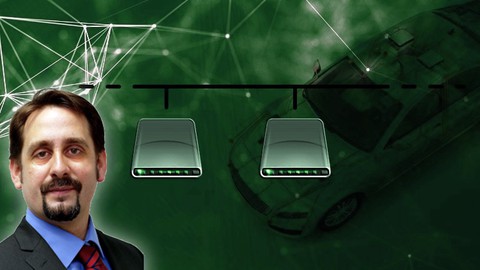Automotive Networks Foundation - From CAN to RT System

Download : Automotive Networks Foundation - From CAN to RT System
Size: 2.6 GB
Description
This is the next follow up course on Automotive Networks.
This course covers the Controller Area Network (CAN) and the application of CAN within the domain of distributed real-time systems.
After an introduction, we walk together through the BOSCH protocol specification details.
We will deep dive into the Controller Area Network and help you understand all angles of the latest design approaches to develop good large distributed CAN networks.
You will understand the benefits as well as the challenges of CAN.
We will build an Arduino example.
Discuss the requirements that real-time systems such as cars, trains, medical or aircraft impose.
Show you some tools used in the industry as well as how to check your CAN designs against real-time requirements.
Besides design pitfalls, we also address security.
In the end, you will have touched upon all market-relevant topics on the Controller Area Network and will be ready to have deep discussions with experts from the industry.
After attending this course you will be able to understand and talk аbout:
- Basics of CAN
- The BOSCH specification
- Extensions to CAN
- Requirements for Real-Time systems
- CAN benefits and pitfalls
- Timing Analysis of CAN networks
- CAN industry standards and tools
- CAN security challenges
- Have the foundation to move on to other automotive network communication protocols
Note: The course tries to be as easy to digest as possible on the topics presented. While it is considered a network protocol ‘beginners’ course to work in the industry, it is not to be confused with an ‘absolute’ beginners course on electronics or computer science. Understanding source code, basic boolean algebra and familiarity working with specifications will help. Comparable courses are part of a Masters’s Degree curriculum. A Bachelor’s level understanding of Computer Science, Mathematics or Electrical Engineering is recommended.